The dark green of the forest was stained here and there with the reds, yellows and oranges of autumn. More and more the blacks descended from the top of the Pietros, making the sun peek out with stinginess. The nights were getting longer, but I rarely saw the sky sprinkled with stars. Even, to my delight, there were fewer and fewer of the shepherds' stray dogs to lift their feet to mark their territory on our bodies. And they came. On a Monday morning, the goatherds came, the canoe-builders came, the raftsmen came, all loaded in a multitude of carts full of tools and goods, driven by fierce wives who, while they were muzzling the horses, were biting the hordes of children crammed into their tailored coifs or sumans. Some with axes and axes, some with axes and axes, some with goats and spades, some with ropes and ropes, they came down in little and in great numbers and set to work. The men took us out of the stack where we had been stored since the spring and dragged us to the water's edge. The craftsmen began to build the boards. I have now learned that a good raft has at least three or four planks, each made of twenty-thirty logs. They set us up tip forward and began to tie us to each other with the sprogs passing through the holes drilled in them with the sprocket. I found myself in the center, that is, in the front raft. What's more, as I was taller, I was chosen to be the captain, being placed on the side. When I looked to the rear I saw behind me two more midshipsmen, and then the codger or the huzer, to which the large oar had just been fixed, to be used by the nanny, the helmsman at the tail of the raft. While the cross-beam and the forward oar were fastened to it, I peeped to see what those on shore were doing. The little ones had taken off their sumas and coxes, and were scampering about, running and hiding behind the wagons. The older ones were standing around us, watching carefully to see if, when they got their tule, they too would become raftsmen.
The housewives made the river stones into a glass, built a fire and hung the pot of water for the dumplings from the bowl. Some of the more spirited ones picked larger stones from the riverbed and arranged them side by side on the middle raft. Over them they placed a few furrows of earth, which they pounded well. Then they made a hearth out of a few other stones, and fixed a bowl to which they hung a cauldron in which the raftsmen could cook their meals while on the water. Others cut an armful of wicker from the reeds on the shore, and made a sack in which the raftsmen put their clothes, tools and bags of goods. After a while I noticed a man more different from the others. He wore boots and a cap, and he tripped and tripped the laborers. He had a notebook in which he jotted something down with a pencil. The raftsmen used to look at him and call him a "kelovec. He was more like the direccibaș, the Turk who, the elders, who had also heard it from their elders during the Ottoman domination, was in charge of the rafting in the area.
After a night spent where we could, when the dawn was just breaking, as if we had dozed off a little, there was a great roar. The water rushed in on the scream. The gates were opened. At first less water came in, lest there should be a tidal wave that would, God forbid, break the rafts. But then, the gates were fully opened, emptying the pack behind the islet. We're floating. The whole crowd gathered on the shore to watch us go. We untie the ropes with which we were anchored and start downstream. It's not long before we pass the quays, leave Zugreniul behind us, leave the peak of Pietrosul to the right and the valley of Bistrița Aurii opens up before us. The raftsmen were carefully following the water, shouting commands and exhortations to overcome the Toancele, those areas with huge boulders that can shatter the rafts like a blizzard. We made it safely out of the area without getting into any jams or prisons, as the raftsmen call them, where many lives were lost. In the danger spots you can see lightning crews on shore. There are young lads who are ready to respond to any accident. I don't know where else to look. The villages perched on the mountainsides or the forests that slope down to the water's edge. Suddenly, a flash of silver lightning flashes beneath me. It's either a wolverine that's rushed to snatch a barnacle or some reckless little clen that's darted down to the depths.
And here we are at Broșteni. Here we were joined by a few rafts from the Neagra. And here, the raft team with which we came, leaves us and returns home. With a new team of rafts, we set sail for the Neamțț region. Here, a few rafts leave us, the wood having been bought by local timber merchants. We float again, on a tamed Bistriță, until near Bacău, at Galbeni at the confluence with the Siretul. A few rafts leave us again on their way to the paper factory at Letea. Here, perhaps, those who wanted to become books and notebooks will realize their dream. Here again the team changes teams and the rafts are joined in twos and threes to form so-called bridges, each led by two raftsmen at the front. In the middle of the Vrancei țínutului the team changes again and more bridges are joined together to form the so-called saluri, which are steered as far as Galati by two men, good helmsmen. Here, as you can see the fate of the tree, after a long selection process, I ended up becoming a tree again, and a big tree at that. Only, instead of branches, I now have saplings. Fixed to the cockpit of the sailboat, I sailed - notice I don't say floated - down the Danube through Sulina and out to sea. I had forgotten to tell you that in front of me on the bow was the foremast, an old friend with whom I had come all the way from Zugreni. I didn't know the back mast, the mizzenmast, having come from somewhere on the Mures. But we were to become friends.
And so we roamed the seas far and wide. I've been to Sevastopol, I've even been to Istanbul. But the tree's days are numbered. One night, in a terrible storm, on our sea, which is not called the Black Sea for nothing, I was torn from the cockpit and thrown into the waves. I floated until I lost track of time, until one day I was washed up on the beach where the old man found me. And just like that, I'll be useful again to my friend, the man.

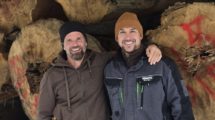

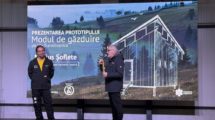




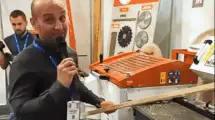






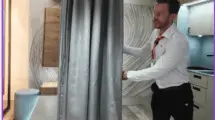
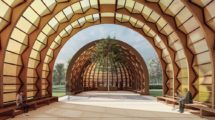

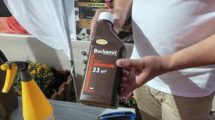
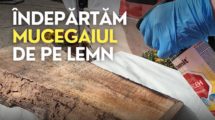


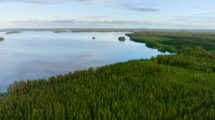
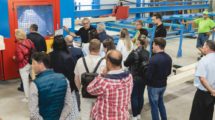






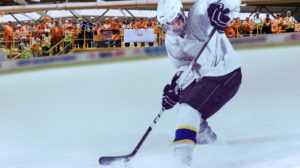





[...] Trip 6 - Water [...]